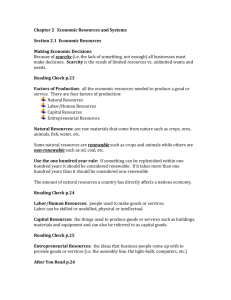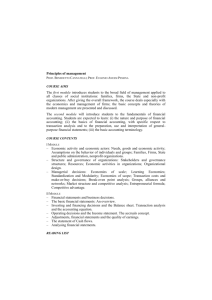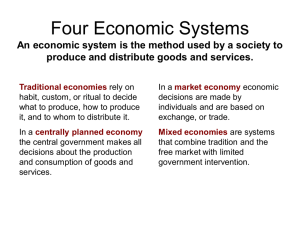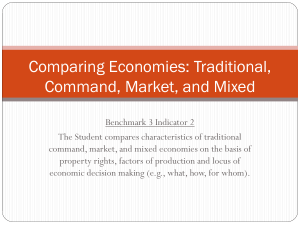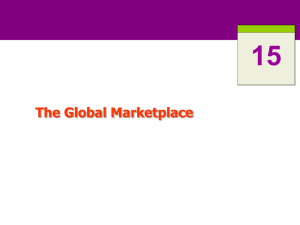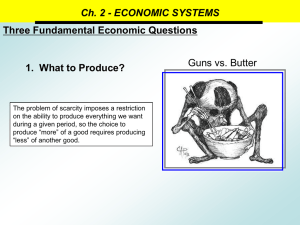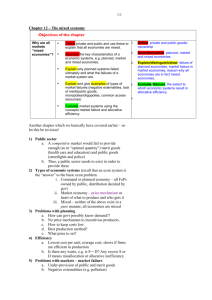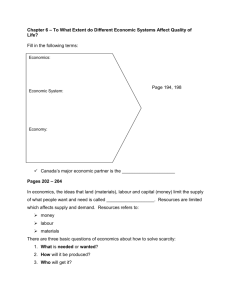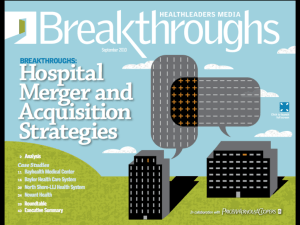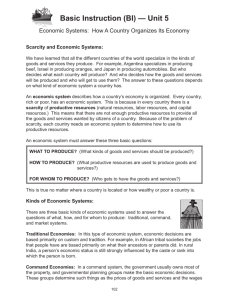A-LEVEL-ECONOMICS-SECTION
advertisement
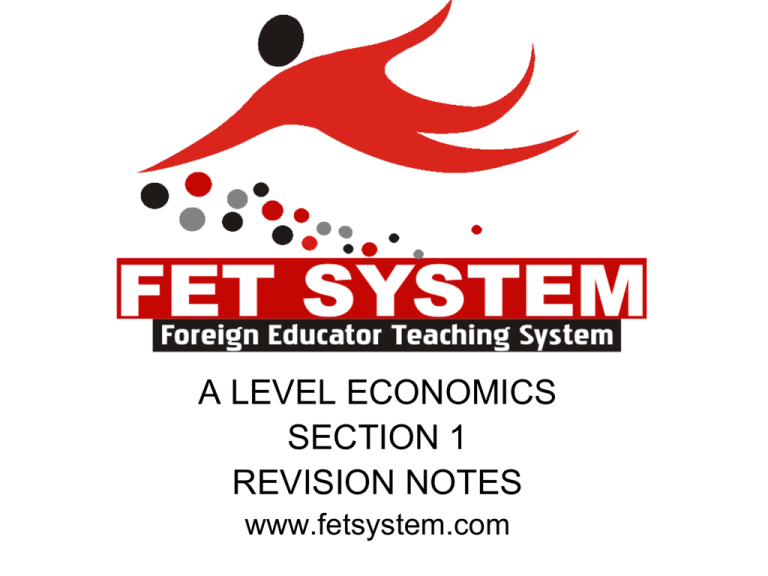
A LEVEL ECONOMICS SECTION 1 REVISION NOTES www.fetsystem.com Scarcity A situation when a choice is to be made Everyone in this world has to face this situation of scarcity It gives rise to the basic economic problem – Scarce/limited resources and unlimited wants Choices at all levels Individuals Firms Governments Individuals The individuals are forced to make a choice Example An individual may have to chose whether to buy a shirt or a pant Firms Firms are also forced to make choices Example A firm may have to chose whether to spend the money or marketing department or research and development department Governments Governments which are considered all powerful too have to make choices Eg. Government has to make a choice whether to spend the public money on defense or healthcare Opportunity cost The next best alternative foregone when a choice is made Opportunity cost is never in money value The benefits which could have been received by taking an alternative action. 3 Basic Questions What to produce How to produce For whom to produce Different Allocative Mechanisms Market economies Planned economies Mixed economies Market economies Market economy is an economy where resources are allocated by the price mechanism, the consumers determine what is produced. Very less role of the government Eg. United states Planned economies Planned system is an economic system where resources are allocated by the, the state determines what is going to be produced. No consideration given to market forces or the businesses Eg. USSR Mixed economies A form of economy which combines the good features or advantages of market and planned economy Business activity controlled by market forces The government provides the essentials: education, health and security Eg. Production Possibility Curve(PPC) It is a graph that shows the different rates of production of two goods and/or services that an economy can produce efficiently during a specified period of time with a limited quantity of productive resources The margin: decision making at the margin Positive statements Actual facts and figures which are both measurable and comparable Normative statements Opinions or suggestions Often called judgements Ceteris paribus Factors of production Land Labour Capital Enterprise Land Natural occurring resources used for production purpose Eg. Earth on which mills are built Water in which fish is found raw materials used to produce goods Labour Manual and mental effort to produce or deliver goods and services People who are willing or able to work are known as labour work force. Eg. Clerks Computer technician O level economics teacher Capital Manmade goods to produce other goods and services Capital is classified into capital goods and consumer goods Eg. Machines Factories Roads Enterprise The people who bring the other 3 factors of production together to produce goods and services. In this process they do the decision making and risktaking Eg Businessmen Division of labour Money Characteristics of Money Functions of Money Efficient resource allocation Economic efficiency Productive efficiency Allocative efficiency
